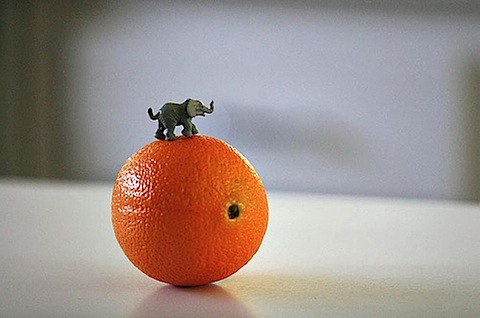How to Use Your Breath to Relax Your Mind

I’ve been getting some questions in my inbox about “how to relax your mind” so I thought I’d write about one very simple way I learned that helps the mind relax by first using three senses (sight, sound and touch) to occupy it and then gradually tuning out until just one point of focus is left and a sense of relaxation is naturally experienced.
When Meditation Can Feel Nasty
One of the challenges in relaxing the mind is that it's practically impossible to think of nothing. Our thoughts come and go constantly and if we are feeling anxious when we try to relax or meditate sometimes our attention is tuned in to that anxiety. We can even feel worse as the distractions we use to keep unwanted thoughts at bay fade away and we are left facing our fears without diversion.
Dr Oz Recommends Daily Meditation for Beating Stress
 When Dr Oz presented his anti-ageing shows on Oprah he emphatically stated that stress is the number one contributing factor in ageing.
When Dr Oz presented his anti-ageing shows on Oprah he emphatically stated that stress is the number one contributing factor in ageing.
Stress happens when we have too much incoming information. In response, we get overwhelmed as our body starts pumping adrenaline and our brain feels set to blow a fuse. One of the problems with overload in our busy lives is that we book isolated breaks here and there, like a two week holiday in the summer, and think that it will help us rest and get back on track. In reality, our bodies and minds need a mini break every day.
The simplest way to get that break is to use the body's natural built-in antidote to stress - meditation. Dr Oz told his audience "Meditation is essential. It allows you to focus on reality and knock off the small stuff that can literally strip decades off your life."
Developing a daily meditation practice, even if it's just for 10 minutes a day, is a powerful aid in stress reduction because it stops stress building to the point where it can cause harm.
If you find the idea of learning meditation daunting Dr Oz recommends trying a meditative activity like Qigong. Breathing with awareness is another easy way to tap into the benefits of meditation without having to learn something that seems unfamiliar or hard to attain, such as sitting in silence and trying to blank your mind for long periods of time.
Bliss on a Bus
 Recently after a busy outing with lots of people, noise and movement, I could feel myself becoming drained and tired. I just wanted to be still and peaceful for a while, but I was on a crowded bus and wouldn't be home for a while yet, so what to do?
Recently after a busy outing with lots of people, noise and movement, I could feel myself becoming drained and tired. I just wanted to be still and peaceful for a while, but I was on a crowded bus and wouldn't be home for a while yet, so what to do?
I reached in my pocket for my iPod, selected a favourite devotional song, closed my eyes, took a few deep breaths, and I was gone... Away from it all, I couldn't hear the chatting around me, I wasn't looking at the moving traffic and lights outside. I felt still and quiet.
After a couple of minutes I began meditating on an image in my mind with full attention until I could see it as clearly as a photograph. I felt my shoulders relax and a smile beginning to twitch the corners of my mouth. Here I was sitting on a packed bus feeling quite blissful.
Blissful & Balanced: Your Brain on Meditation

Neuroscientist Shanida Nataraja grew up in a family where meditation was a normal part of life, but as an adult research scientist she decided to look for hard proof that what her parents practiced worked.
What she found surprised her: "I really didn't expect to find that meditation plays such a role in optimising brain function and health, from cognitive abilities to cardiovascular wellbeing."
The benefits of meditation have been know for thousands of years and are obvious to anyone who practices regularly. The benefits are real, and can be felt. We don't need to know what the circuit board of a digital watch does to tell the time, we just read the numbers.
But having rebelled against meditation as a teenager, Shanida decided to scrutinize the experience of mindfulness with EEGs and galvanic skin response meters (which monitor the skin for evidence of emotional changes). Her findings suggest that the benefits of mediation are experienced due to whole brain integration.